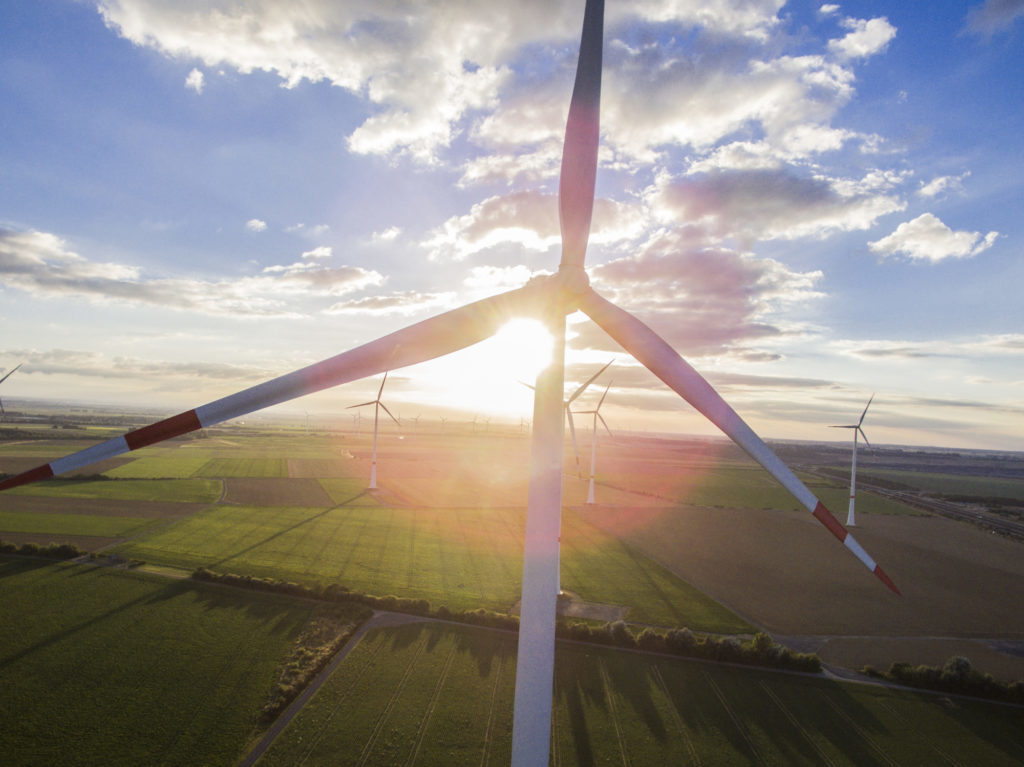
For Heiner Kleen, Germany’s renewable energy revolution looks like it will end in redundancy.
After almost two decades building concrete towers for wind turbines at a unit of market leader Enercon GmbH on Germany’s North Sea coast, he will probably lose his job in the latest wave of cuts hitting the industry. The 40-year-old may join thousands of European engineers and workers that in the past few years have become victims of the globalization and maturing of a sector Germany led for decades.
As nations from Asia to South America embrace wind power to rein in pollution, plunging costs are squeezing profit and German suppliers are forced to move manufacturing and jobs abroad to markets with higher growth. In the past few years, more than 2,000 positions have been eliminated in Germany in what more and more mirrors the decline of its solar panel industry virtually wiped out by competitors in China.
“Once these highly specialized jobs go, they’re gone forever,” Kleen said by phone. “It’s crazy for German companies and the government just to sit and watch this happen.”
Enercon, a closely held manufacturer which built its first turbine more than three decades ago, said Aug. 2 it will cut about 800 German supply jobs from this quarter, citing declining domestic demand and a shift to steel from the concrete towers that Kleen has spent most of his adult life building.
And the story told by several other producers is similar: Surging orders abroad, but a domestic market in decline as subsidies make way for competitive auctions that crimp new supply.
“Shipping to India doesn’t work, shipping to Chile from Germany will never be cost-efficient,” said Manav Sharma, the interim chief executive officer at Senvion GmbH, a turbine manufacturer. “There are business requirements and there are solutions.”
With wind and solar output at times providing the majority of Germany’s electricity, Chancellor Angela Merkel’s transition of Europe’s biggest economy away from fossil fuels and nuclear, has drawn admiration from other nations seeking to comply with tougher pollution rules under the 2015 Paris agreement.
But the stalled growth and redundancies in the wind industry is a blow to her plan that clean power jobs can to some extent take over from employment at conventional power parks. Merkel is planning to exit coal as well as nuclear and was counting on the wind industry after lower production costs in China wiped out 130,000 domestic solar industry jobs.
Jobs in the sector probably peaked at 160,000 in early 2016 and is still near that level, according to the BWE lobby group. The tally is about the same as the number of people employed at conventional power at coal, gas and nuclear plants.
While Nordex doesn’t envisage any more cuts in Germany, jobs will shift abroad, a spokesman said. The company’s European orders have shrunk to 50 percent of its total from as much as 90 percent a few years ago, he said.
Merkel’s energy transition, or Energiewende, was supported by generous subsidies paid for by consumers and caused retail rates to soar to the most expensive in Europe after Denmark, another wind power pioneer. Auctions introduced competitive pricing in bids to win capacity, causing investors and turbine makers to squeeze costs or risk going empty-handed in the tenders.
Germany’s BWE and BEE renewable energy lobbies blame the government for causing wind job growth to stumble after it tapered auction volumes for this year.
Kleen says the only way to save some of the jobs at Enercon would be if the government increased the auction capacity to boost demand for turbines, but he’s not optimistic. He doesn’t see a way for the industry of stemming the shift of jobs abroad.
Clean energy “must at some point be able to compete in the market without endless support,” said Deputy Economy and Energy Minister Thomas Bareiss said at a conference in Berlin this week.
But BEE President Simone Peter is bullish, despite the government now auctioning only half of the new capacity compared with last year.
“The wind power cake in Germany, in Europe is big enough for everyone to get a slice for years to come, including turbine makers,” said Peter. “We have a massive job to cut emissions and to switch to a carbon-free economy.”
And to some extent Kleen agrees, saying the outlook for the industry is still bright although maybe not in Germany.
“The wind industry has a terrific future,” he said. “That’s what we were led to believe and still believe. That’s why we joined it and that’s why we’re so disappointed.”
Recommended for you
